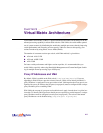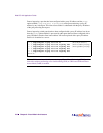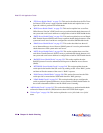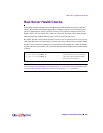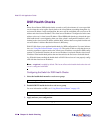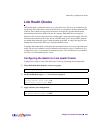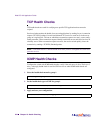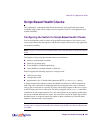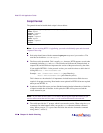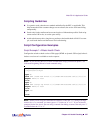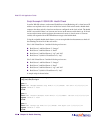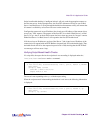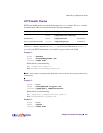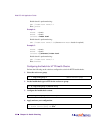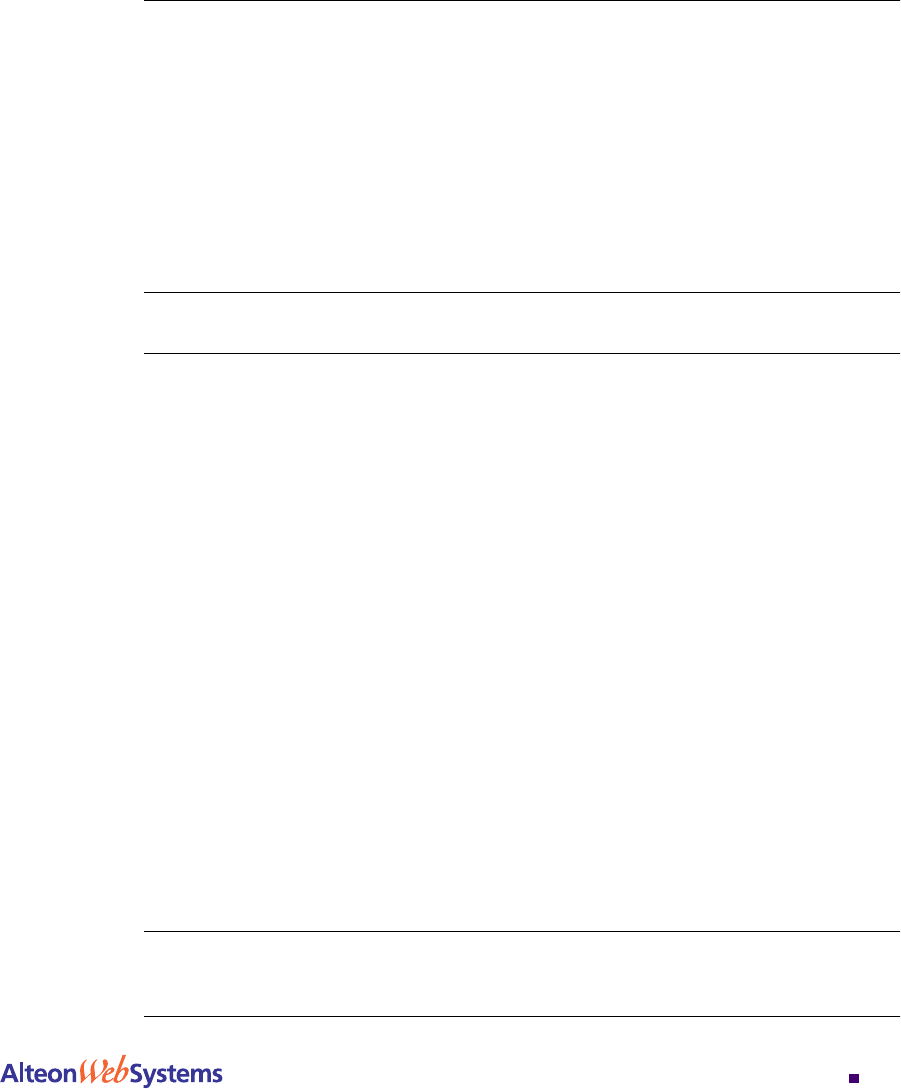
Web OS 10.0 Application Guide
Chapter 10: Health Checking
225
212777-A, February 2002
Script-Based Health Checks
The “send/expect” script-based health checks dynamically verify application and content
availability using scripts. These scripts execute a sequence of tests to verify application and
content availability.
Configuring the Switch for Script-Based Health Checks
You can configure the switch to send a series of health check requests to real servers or real
server groups and monitor the responses. ASCII-based scripts can be used to verify application
and content availability.
NOTE – Only TCP services can be health checked, since UDP protocols are usually not ASCII
based.
The benefits of using script-based health checks are listed below:
n Ability to send multiple commands
n Check for any return string
n Test availability of different applications
n Test availability of multiple domains or Web sites
Web OS supports the following capacity for a single switch:
n 1024 bytes per script
n 16 scripts per switch
n approximately 10 to 15 health check statements (HTTP get and expect strings)
A simple command line interface controls the addition and deletion of ASCII commands to
each script. New commands are added and removed from the end of the script. Commands
exist to open a connection to a specific TCP port, send an ASCII request to the server, expect
an ASCII string, and close a connection. The string configured with an expect command is
searched for in each response packet. If it is not seen anywhere in any response packet before
the real server health check interval expires, the server does not pass the expect step and fails
the health check. A script can contain any number of these commands, up to the allowable
number of characters that a script supports.
NOTE – Health check scripts can only be set up via the command line interface, but once
entered, can be assigned as the health-check method using SNMP or the Browser-Based Inter-
face (BBI).



